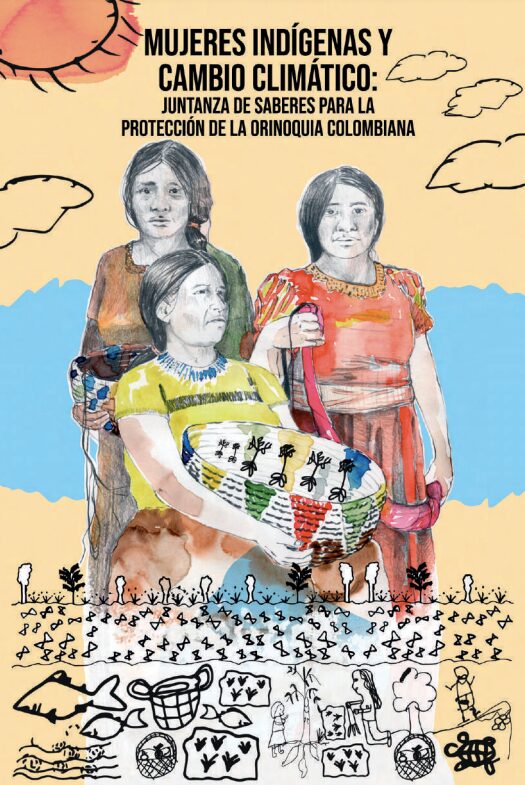Climate change is a global reality, and the indigenous women of La Primavera in the department of Vichada in Colombia are no excepted of its global consequences. Climate change is impacting their way of life, their relationship with their bodies, their territory and their cultural and ancestral practices. For them to increase their resilience, they have had to design adaptation and mitigation strategies to resist and re-exist in their territories and carry out the work of protecting and defending life, territory, nature and their very survival as indigenous peoples. These new paths taken by the women of the Sikuani, Kuiba and Piapoco indigenous peoples must be recognised and supported by public policies with a gender, ethnic and cultural approach that guarantee their individual and collective rights.
The “Indigenous women and climate change: bringing together knowledge for the protection of the Colombian Orinoquía region” research aims to broaden understanding of the trends and dynamics that restrict indigenous women’s possibilities for action. Specially regarding the defence of freedom of association for the protection of their territorial and ethnic rights, for climate action and justice, and the risks faced by women human rights defenders in the process.
 This research was developed using a participatory action methodology, involving a group of six indigenous women as co-researchers, and with the participation of women from two resguardos (Gavilán la Pascua and Llanura Tomo) and one settlement (El Trompillo Kuwai), all in the department of Vichada in Colombia. The document gives an account of the context in which the women of the Orinoquía region defend their environmental and territorial rights, revealing multiple barriers. Some of these barriers are structural racism, the extractivist economic development model, the increasing loss of their cultural practices, the impacts of the armed conflict and the almost exclusive allocation of care roles assigned to them, which limits the exercise of their rights and their full participation.
This research was developed using a participatory action methodology, involving a group of six indigenous women as co-researchers, and with the participation of women from two resguardos (Gavilán la Pascua and Llanura Tomo) and one settlement (El Trompillo Kuwai), all in the department of Vichada in Colombia. The document gives an account of the context in which the women of the Orinoquía region defend their environmental and territorial rights, revealing multiple barriers. Some of these barriers are structural racism, the extractivist economic development model, the increasing loss of their cultural practices, the impacts of the armed conflict and the almost exclusive allocation of care roles assigned to them, which limits the exercise of their rights and their full participation.
Finally, the document presents a series of recommendations made from the voices of women defenders to local, regional and national governments, such as the construction of a public policy for climate justice that takes into account the ethnic knowledge of indigenous women, thus guaranteeing their effective participation.
Protection International calls for greater political and social efforts to include the traditional and ancestral knowledge of indigenous peoples and their conception of territory as an integral part of their lives as peoples, with the concepts and strategies of the National Government to address climate change. The document also offers some recommendations to overcome the barriers they face in exercising their right to defend human rights.
The document is only available in Spanish and can be downloaded here.


